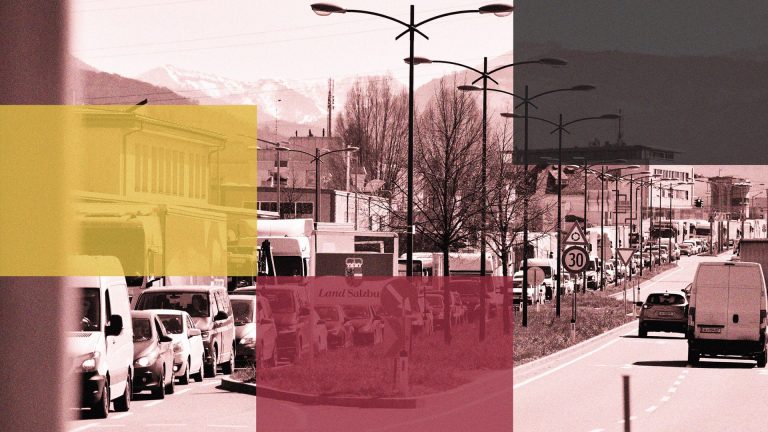Silly season hasn’t even kicked off, and we’re already knee-deep in headline-worthy tales of paper-pushing absurdities. First, there’s the town council of Büren, a 21,500-people-place near Paderborn you’ve probably never heard of (neither had I). Ostwestfalen (“Eastwestfalia” – yeah, don’t ask) isn’t the most famous German region, which is a shame, really, since the Teutoburg forest is actually quite beautiful – and deadly, if you’re three Roman legions running into Arminius in 9 AD.
Anyway, the good people of Büren apparently needed a reminder not to grope, sexually harass or assault their fellow swimmers in public pools. So signs were put up saying: “Summer Sun Security. You have the right to bodily autonomy.” Plus a button stating: “Stopp! Grabschen verboten!” (No groping!)
So far, so good. Until you see the coloured pencil illustration: a ginger middle-aged woman, clearly not a gym regular, grabbing the butt of a much smaller, anxious-looking dark-skinned boy underwater. The boy in the drawing, just in case his appearance doesn’t shout “victim” loud enough, has a below-knee prosthetic leg.
You couldn’t make it up – but Büren’s town hall did, and immediately went into hasty defence mode once their well-meant public awareness campaign hit the national news. According to an official statement, the authorities are taking the fiasco as an opportunity for self-critical reflection.
To be fair, had they drawn something closer to reality, they’d have probably been accused of racial profiling. For the record, the Bundeskriminalamt (Federal Police Office) only started tracking sexual assaults in pools last year. In 2024, two-thirds of suspects (237 of a total of 367) weren’t German citizens. The most common country of origin among them was Afghanistan, followed by Syria.
Putting nationality aside: it’s almost always men misbehaving in swimming pools, which makes stigmatising red-haired white women rather farcical.
Speaking of farcical: Cologne’s city administration decided that – trigger warning! – the term “Spielplatz” (play ground) is no longer up to date.
I’ve lived in Köln. A few things come to mind that could use improvement in that fantastic city. Lengthy construction periods, for example. Then again, if it took you more than 600 years to build a cathedral, you may regard the nearly 14 years of opera house renovations as the blink of an eye.
Suggested Reading


Merz promised a migration crackdown. Can he deliver?
The city administration, however, has its own priorities: replacing hundreds of playground signs. Because “particular attention must be paid to the broader concept of inclusion, which takes into account the diversity of users in terms of age, cultural background, and potential disabilities.” So from autumn onwards, the “limiting term Spielplatz” was to be replaced with “Spiel- und Aktionsfläche” (play and activity area) – so that no one feels excluded.
Upon reading about the playground folly in the local paper, and then in national headlines, Mayor Henriette Reker put an end to it: “Personally, I find the term ‘playground’ clear and easy to understand, and given the challenges facing Cologne, I have no sympathy whatsoever for the administration spending its time redesigning playground signs.”
It’s this kind of straight talk that has lately boosted chancellor Friedrich Merz’s popularity. It’s hard to miss: his government isn’t exactly getting everything right, having promised more than he can deliver. But on the bluntness front, Merz – who can be his own worst enemy rhetorically – has been gaining ground.
As Angela Merkel quipped: “He’s definitely not beating around the bush” – she was referring to Merz’s comment that by attacking Iran, Israel was doing “the dirty work for all of us”.
When it came to protocol, there was no misunderstanding Merz’s position either. He defended the decision not to raise the pride flag on the Bundestag for Berlin’s Christopher Street Day parade, saying parliament “is no circus tent” – which naturally caused anger not only among queer activists. In the same breath, though, the chancellor had pointed to 17 May, the International Day Against Homophobia, when the rainbow flag is annually flown from the Bundestag. So the accusation that he’s trampling on minority rights is a bit of a stretch: Merz is not Orbán.
He doesn’t weigh every word – and some say he should, given the responsibility he’s holding in office. But in a country which feels like a battleground over free speech, to many people Merz’s Klartext (plain language) is quite refreshing.




